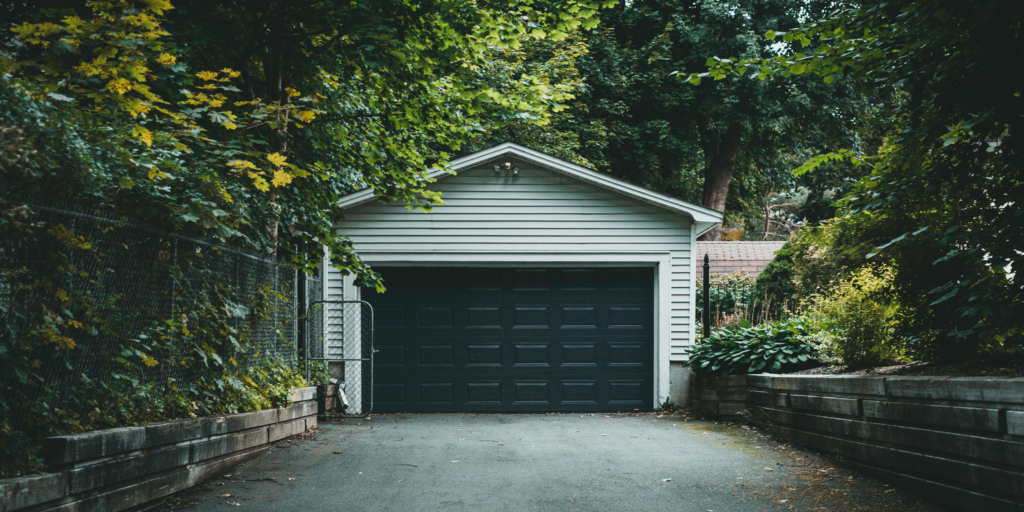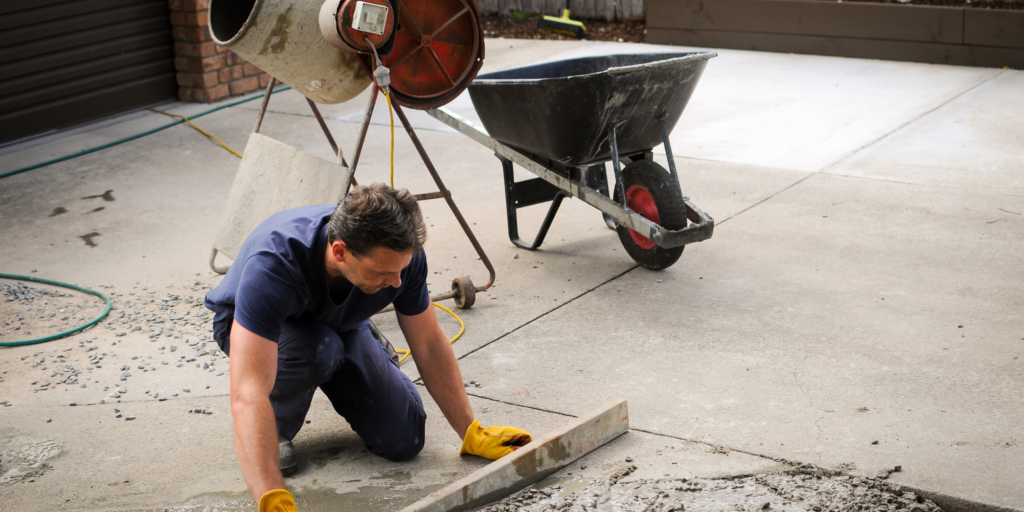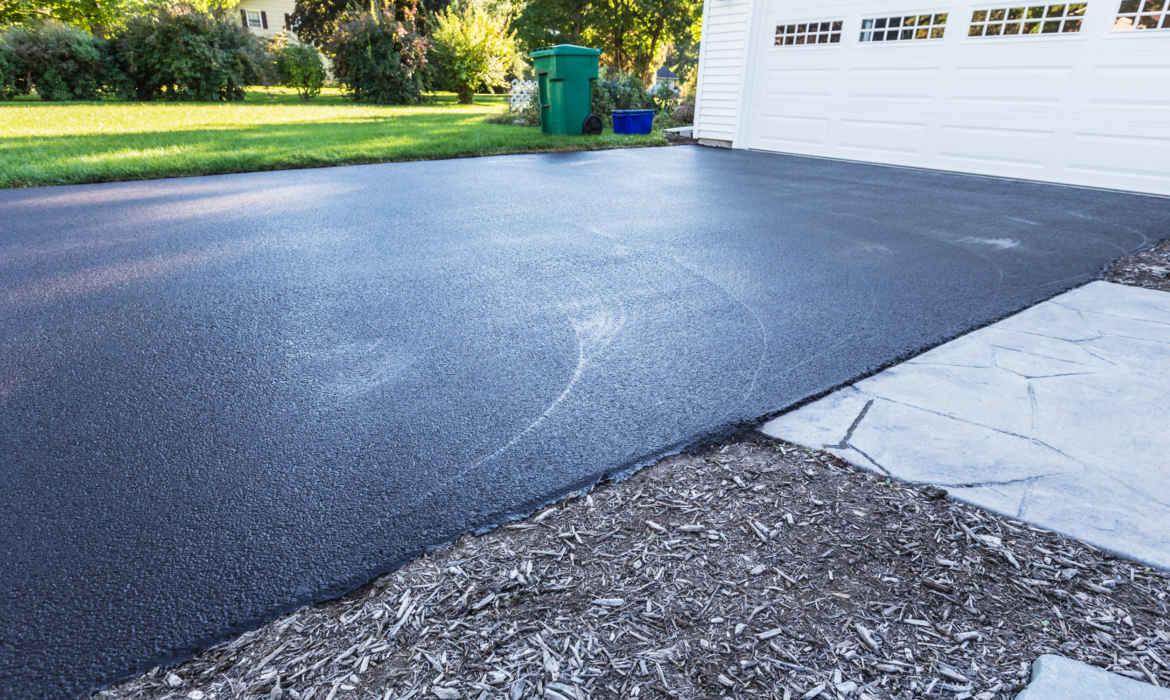Your driveway is a vital component of your property that serves both a functional and decorative purpose. It is a way to your home and a gateway to visitors and potential buyers. The right driveway preservation is the key to the driveway’s durability and to make it look its best. This entire guide will be about driveway maintenance, covering several techniques, materials, and factors that should be considered when choosing the best preservation method that will fit your needs.
The Importance of Driveway Preservation
Your driveway is exposed to many environmental stressors, such as sunlight, rain, snow, ice, and the pressure and friction from traffic. Gradually, these factors can lead to wear and tear, which will cause cracks, potholes, and the general decay of the appearances of the surroundings. Driveway preservation is vital for several reasons: Driveway preservation is of great importance due to the following reasons:
Curb Appeal: A well-maintained driveway enhances the appearance of your property and creates a positive impression on your visitors, neighbors, and buyers who may be interested in buying your property.
Safety: A poorly maintained driveway can pose safety risks such as tripping hazards and even vehicle damage. It is vital to keep the roadway in good shape for the sake of safety to prevent accidents and costly repairs.
Longevity: The driveway can be saved from being destroyed by regular maintenance, which in turn will increase its lifespan, and thus, you will not have to replace it entirely.
Property Value: A well-kept driveway will make your house more appealing; thus, if you plan to sell your home, you can get a better price.
Driveway Preservation Techniques
Driveway maintenance is hard work; it varies according to the situation and the weather. Now, we will proceed to delve into the most common methods that are most frequently used:
1. Sealcoating
Sealcoating is the most used method of protecting driveways; that’s why it is applied so often. The main process is the application of a protective coating on the surface. Thus, the moisture no longer gets in, the UV rays are not affected, and the surface is not damaged. Sealcoating is a widely used option for asphalt driveways.
2. Resurfacing
Surfacing, also known as overlaying, is a method of restoring driveways with medium to severe damage. The process consists of covering the already-existing surface with an additional layer of asphalt or concrete. This is a brilliant way to reduce the jagged edges and make your driveway look good.
3. Crack Filling
Asphalt and concrete driveways can become cracked. When this happens you will have to repair them immediately so as not to let the water seep in and do more harm to your driveway. Many items, for example, crack fillers and patching compounds, have been released.
4. Patching
Patching is a difficult repair method applied to big holes, deep cracks, or portions with serious damage. This common practice entails removing the damaged parts and laying down new asphalt or concrete.
5. Regular Cleaning
It’s simple but very effective, and cleaning is the best way to preserve your driveway’s excellent condition. Removing debris, oil stains, and dirt is necessary for the driveway’s improved look. Also, staining prevention is required.
6. Proper Drainage
Water is often an enemy of driveways, because it causes damage and deterioration. Proper drainage is of utmost importance in order to prevent the water from being collected on the ground, thus making the surface unfit for usage. This process is done by grading and installing drainage systems.

Driveway Materials and Their Preservation
Driveways are typically made from two primary materials. Each material has its unique properties and requires specific preservation methods:
1. Asphalt Driveways
Asphalt driveways are well known for their durability and the ability to handle the movement of the earth. Nevertheless, they are vulnerable to UV rays, water, and chemical spills that can cause damage to them. Here’s how to save and safeguard an asphalt driveway:
· Sealcoating: The seal of the surface on a regular basis can be a protection from water and UV rays.
· Crack Filling: Cracks should be sealed to keep water out at all times.
· Proper Maintenance: The surface should be gently swept and cleaned regularly, and stains should be taken out to keep it looking great.
2. Concrete Driveways
Concrete driveways are durable and can last for many decades. Nevertheless, they are easily breakable, especially in the freezing weather. To preserve a concrete driveway, consider the following:
· Sealing: A concrete sealer of good quality can be used to protect the surface from penetration of moisture, stains, and UV damage.
· Regular Cleaning: Keep the driveway clean on a regular basis to prevent dirt and stains from accumulating.
· Crack Repair: Get those cracks fixed as early as possible to prevent water from getting into them and the damage that may follow.
· Resurfacing: In case of severe damage, you may consider resurfacing in order to make the appearance and structural integrity of the building better.
Factors to Consider When Choosing Driveway Preservation
Various factors will determine the choice of the preservation method for your driveway. Here are some key considerations:
1. Current Condition
Analyze the current state of your driveway. Is it a sign of aging, or does it have big cracks and potholes? The extent of the degradation will be the deciding factor in the selection of the best preservation method.
2. Material Type
If you have a concrete driveway, it can turn into a slippery surface when it is wet. Thus, it becomes a danger to pedestrians and cyclists. Asphalt and concrete have different maintenance needs, which have been mentioned above. Be sure to choose the techniques that are suitable for your driveway material.
3. Budget
Your budget, being a vital element, directly affects the preservation options you can choose. Sealcoating and regular cleaning are the more cost-effective methods, whereas resurfacing and large-scale repairs are more expensive.
4. Climate and weather are the main factors that influence Earth’s environment.
The climate and weather of your area are factors that affect preservation. For instance, if you live in a place with extreme winters, your driveway may be more susceptible to freeze-thaw cycles, which, in turn, may result in cracking. Hence, sealing and crack filling are the main remedies in such cases.
5. Aesthetic Preferences
There are some preservation techniques that can be used to make the driveway more attractive. You can either resurface or put on decorative finishes if the aesthetic is the main thing.
DIY vs. Professional Services
Driveway preservation can usually be a DIY project that does not require professional assistance; however, there are advantages to hiring professional services.
DIY Preservation:
· Cost-Effective: Some of the tasks in preservation can be done on a budget with DIY methods and products.
· Convenience: Little tasks such as cleaning, tiny crack filling, and sealing can be done by oneself.
Professional Preservation:
· Expertise: The experts are the ones who know how to evaluate the state of your driveway, and they have the experience to use the best preservation techniques.
· Quality Materials: Usually, professional services use the best materials known to be durable.
· Time-Saving: The primary conservation activities, such as resurfacing or extensive repairs, can be time-consuming. Experts in the field can finish these projects in a short time.

Choosing the Right Contractor
If, ultimately, you opt to hire a contractor for your driveway preservation, selecting a good one is of utmost importance. Here’s how to make an informed choice:
Research: Locate contractors with a good reputation in your area—ask friends, neighbors, or online reviews for suggestions.
Get Multiple Quotes: Obtain the quotes from at least two contractors. This will help you discover the project’s average cost, and thus, you will get a better understanding of the expense.
Check Credentials: Ensure the contractor is licensed, insured, and has the required permits to operate in your area.
Ask for References: Reach out to the contractor and ask for his/her references. Contact their previous clients to hear what they have to say about him.
Written Agreement: The project details, costs, and timelines must be clearly stated in a written contract before the work begins.
Warranty: Request any warranties covering the work done and the materials used.
Communication: Choose a contractor who is ready to talk and is willing to answer your questions.
Regular Maintenance Tips
Maintenance is a never-ending process; thus, regular Maintenance is the key to extending the life of your driveway. Here are some tips to help you keep your driveway in excellent condition:
· Sweep and clean regularly: Clean the surface of the driveway by removing dust, leaves, and dirt to avoid staining and surface scratches.
· Promptly address cracks and potholes: Sealing and repairing the damage as soon as you see it will help you prevent the damage from worsening.
· Seal as needed: Adhere to the application instructions of the sealant that is suitable for your driveway material and the local weather conditions.
· Proper drainage: Make sure your driveway is designed to let the water drain properly, thus preventing it from being pooled and causing damage.
· Avoid harsh chemicals: Harsh de-icing agents should be limited, as they can damage the driveway’s surface.
Environmental Considerations
In the present eco-friendly world, one must consider the environmental issues related to driveway preservation. Here are some eco-friendly tips:
· Choose eco-friendly sealants: Try to use eco-friendly sealants and conservation materials that are low in volatile organic compounds (VOC).
· Proper disposal: Be certain that the waste materials from preservation or maintenance are appropriately disposed of in an eco-friendly manner.
· Rainwater harvesting: Why not think about the idea of installing rainwater harvesting systems in your property’s design to use rainwater for cleaning and irrigation?
Legal Considerations
Before you begin any preservation project, make sure you research any local rules and obtain any permits needed for the driveway work. Some places may have special rules for the upkeep and preservation of driveways. You are required to obey all the local laws and regulations.
Conclusion
Your driveway is a precious asset that should be well taken care of to ensure its beauty, usefulness, and longevity are not affected. By analyzing the different preservation methods, materials, and factors to consider, you can make a well-informed decision on how to maintain your driveway in the best possible condition. Whether you decide to do it yourself or let the experts do the work for you, the main thing is to be proactive when preserving this important part of your property. A neatly maintained driveway will serve you for a long time and leave your guests and potential buyers with a good impression of your house.

